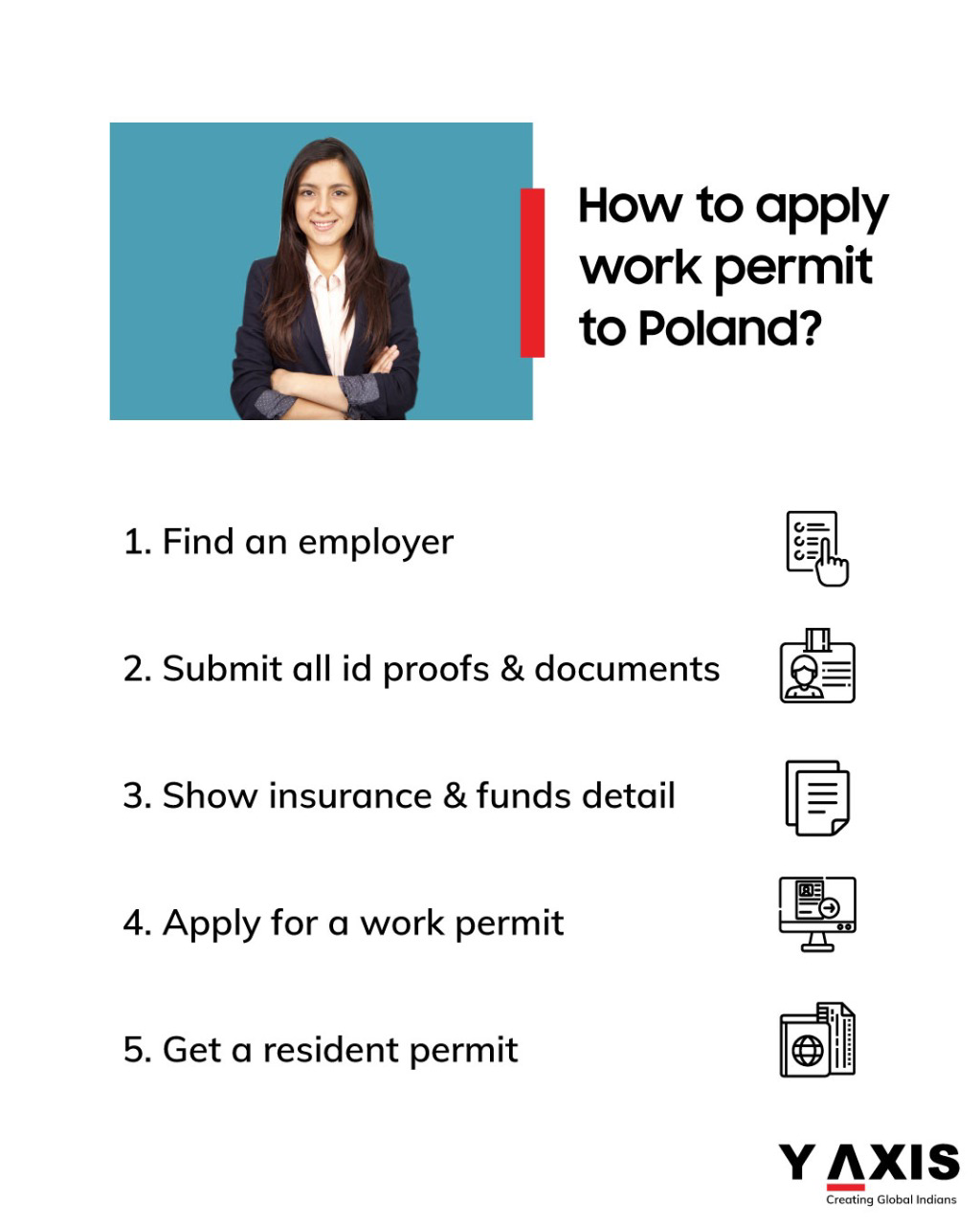Posted on September 11 2021
How to apply for Poland work permit?
By , Editor
Updated September 14 2023
If you are a non-EU citizen who want to work in Poland, you must first obtain a work permit. The work permit you receive is only good for one job, and you can only use it to complete the duties listed on your application form. You will need to apply for a new work permit if you change jobs. A work permit is only valid for three years.
The country has job opportunities in the construction, business, distribution and transport sectors.
[embed]https://youtu.be/zaz4T3UEK6w[/embed]
There are five different types of work visas available in Poland:
Type A - If you find work through an employment contract or a civil law contract with an employer who has a Polish office. This is the most common work permit.
Type B - This work visa is valid if you are a board member who will be residing in Poland for a total of more than 6 months in the next 12 months.
Type C - If you are sent to Poland by a foreign employer for more than 30 days in a calendar year to work for the foreign employer's subsidiary or branch office in the country, you can apply for this work visa.
Type D - If a foreign employer sends you to work in export services on a temporary basis, you are qualified for this visa. A foreign employer may not have its own branch or subsidiary in Poland.
Type E — This visa is for work-related tasks that do not fall into any of the above categories.
Your employer is responsible for obtaining a work permit on your behalf. Assume you've found a willing employer and your stay has been legalized (either on the basis of a visa you have obtained or on the basis of a residence permit). To obtain a work visa, your potential employer must complete a work permit application that includes the name of the firm you are recruiting for as well as your future job description within this company.
If you are offered a job in Poland, your company is responsible for obtaining a work permit on your behalf.
Before submitting an application for a foreign work visa, a firm must undertake a labor market analysis.
Your employer is responsible for obtaining a work permit on your behalf. Assume you've found a willing employer and your stay has been legalized (either on the basis of a visa you have obtained or on the basis of a residence permit). To obtain a work visa, your potential employer must complete a work permit application that includes the name of the firm you are recruiting for as well as your future job description within this company.
If you are offered a job in Poland, your company is responsible for obtaining a work permit on your behalf.
Before submitting an application for a foreign work visa, a firm must undertake a labor market analysis.
The purpose of this test is to determine whether any Polish or other EU residents are qualified to fill the position. These individuals are given priority over foreign nationals.
If there are no qualifying candidates available, the business might apply for a work visa on your behalf.
With the application, the employer must attach documents demonstrating that the following conditions are met:
All applicable employment rules, including provisions of the Labor Code, are met in terms of working conditions.
The Voivodeship Office states that remuneration should not be less than 30% of the average monthly wage.
Documents required
- Completed application form
- Receipt of payment pf application fees
- Verification of the employer's legal status from the National Court Register
- Updated records of the employer's economic activity
- Copies of the applicant's passport pages
- Proof of health insurance coverage
- A copy of the employer's profit and loss statement
- A copy of a contract relating to the service offered by the company in Poland
Your employer has to provide you with:
- A written work contract.
- A translation of the employment contract in the language of your choice.
Your employer must check the validity of your residence permit or visa and make a copy and notify social security and health insurance organizations within seven days after signing the work contract, which allows you to receive free healthcare, sick leave, and other social benefits.
Advantages of a work permit
With a work permit you can:
- Legally work in Poland
- Legally stay in the country
- Do the work defined in the work permit
- Sign a work contract with your employer
The visa should take roughly 10 to 12 days to process. You can legally work in Poland once you have obtained a work permit.
Tags:
Poland work permit
Share
Y-Axis Services
Get it on your mobile
Get News alerts
Contact Y-Axis
